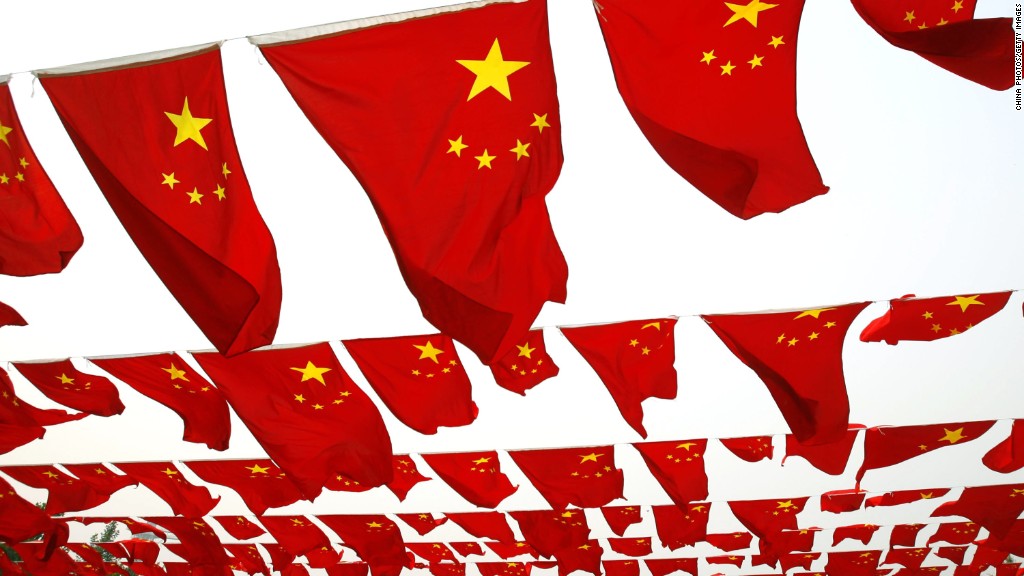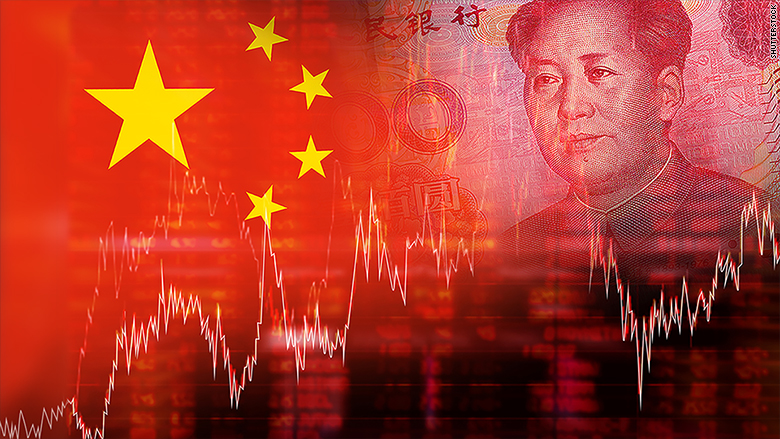
China just told the world that its economy is growing at 6.9%. Almost no one believes that.
The Communist Party in China values stability above all else. The Chinese government set a target of 7% economic growth this year, so it's no surprise that the country is reporting a figure very close to that.
"I once asked the premier of China: how reliable were Chinese statistics? He said not reliable, but they tell you which way the wind is blowing," says former ambassador Stapleton Roy, who is now at the Kissinger Institute on China and the U.S.
Here's what the latest GDP report tells us: Even the government acknowledges that China just had its worst economic growth since the Great Recession.
Related: CNN's Fear & Greed index has recovered from fear mode
But it's also a reminder to the world that it might not be that bad. China is not back where it was in 2009.
The country may be in "mini-panic" mode, but it's not in get to the emergency room right now mode.
Investors around the world recognize this. It's why there isn't a major market sell-off today like there was in August.
Related: China now has more billionaires than U.S.
There are signs China is stabilizing
Frankly, the data coming out of China isn't as terrible as some feared over the summer.
The Chinese stock market has stabilized -- it's actually up 15% this month alone.
More importantly, there are some decent signs that Chinese consumers are still spending. Retail and property sales have been ticking up. That helps offset the manufacturing slowdown.
To get a truer sense of what's going on in the China, research firm Sanford Bernstein keeps an eye on sales of movie tickets, cars, mobile phones and Alibaba (BABA)online transactions. It's weaker, but not bleak. Bernstein estimates third quarter growth was actually 4.1%.
Capital Economics says China has stabilized. It puts growth at 4.5%.
"I don't think the economy has fallen apart in the third quarter," says Derek Scissors, a scholar at the American Enterprise Institute, who specializes in China.
Related: China's economy is in trouble. How bad is it?
China economic growth is still massive
It's still a lot of growth in the world's No. 2 economy.
JPMorgan (JPM) CEO Jamie Dimon summed it up well in an interview Monday on Bloomberg TV: "China has had 20 years of 10% growth uninterrupted, never before seen on this planet. They are going to have bumps in the road."
But, even 4% growth for China's $10 trillion economy is still $400 billion. Keep in mind that's actually a lot more in dollar terms than the days of 10% growth a decade ago, when China's economy was only $2 trillion.
Related: Jamie Dimon: China has 'huge issues' but don't freak out

But China still has real problems
The reality is China still has real problems, but they are unlikely to tank the Chinese economy, let alone the world economy, in the coming months.
The twin challenges China faces are:
- How to build an economy that does more than produce cheap stuff
- Lots of debt. The Wall Street Journal has dubbed it a "debt bomb."
China's economy was built on making things for extremely low rates and exporting them around the world. Now China wants to transition to a middle class economy which is powered by its own citizens buying goods and services.
"That transition will be a lot rockier than people think," prominent hedge fund manager Jim Chanos told CNN recently. Chanos, who was one of the first to spot Enron's problems, has been betting big against China in recent years.
Related: China GDP growth slides to 6.9%, worst since 2009
China's debt bomb is ticking
But the larger issue that Chanos has been warning about is debt.
The federal government has a lot of cash on hand. But local governments, banks and companies have borrowed heavily.
A recent Mckinsey Global Institute report shows China's debt has skyrocketed since 2007. It's not quite as bad as Greece, but it has grown debt faster than Spain. China's debt-to-GDP ratio is now 240%, McKinsey says.
At some point that debt will come due and some organizations might not be able to pay.
"You have a 1-2 punch coming in next decade [for China]: An aging society and debt," says Scissors, the AEI scholar. "It's a lethal combination for any country."
This isn't really weighing on the markets now. But that time will come. Hopefully it doesn't strike when the rest of the world is struggling.


